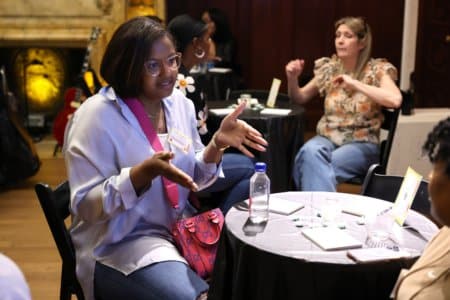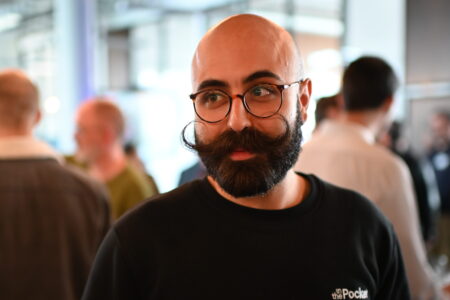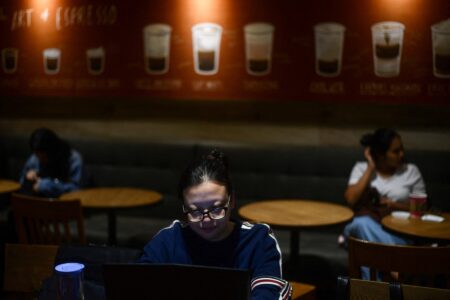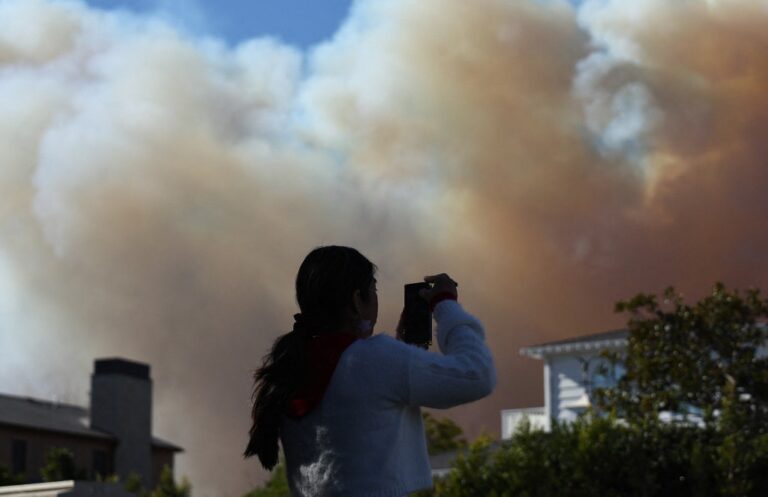
Business schools are going green. Long known as merely places to learn about making a profit, they are now shedding this image by offering sustainable business programmes. The “sustainable” prefix signifies many things – a means to get corporations to play a part in solving environmental challenges, preparing students to help companies achieve Sustainable Development Goals, and more.
But what’s clear is this: sustainable business programmes are adding earth as the new bottom line and a shareholder the business world can’t ignore.
What’s behind this shift?

The California wildfires of January 2025 have swept through 40,000 acres in the Greater Los Angeles area, destroying entire communities and more than 12,300 structures. Source: AFP
The alarming reality of climate change
It’s no secret that climate change is happening – very quickly, at that.
The United Nations describes climate change as the defining issue of our time. No country is spared from this crisis – it disrupts national economies and affects lives, creating rising sea levels, extreme weather events, and even climate disasters such as the Los Angeles wildfires.
Without proper action, the world’s average surface temperature is projected to rise over the 21st century and is likely to surpass 3°C. The poorest and most vulnerable people are at risk of losing homes, health, livelihoods, food and water as a result.
But not all is lost. Many more are joining the race to battle climate change – solutions are being coordinated at an international level to address this global challenge. There is the historic Paris Agreement, for example, which includes commitments from all countries to reduce their emissions and work together to adapt to the impacts of climate change.
Then there are business schools – a truly international field where faculty, researchers, and students work day in and day out with people from different continents, countries, and cultures.
Insight into sustainable business programmes
As a young professional, Isha Verma initially wasn’t aware of how much sustainability mattered until she obtained a job at Hilti. The company is part of the Hilti Group, a multinational manufacturer that works to make construction more productive, safer, and sustainable.
Inspired by her new venture, she began to do things any average person would do – take public transport, reduce plastic waste at home, and even reuse paper.
Today, she’s learning that she can do so much more. Verma chose to pursue an MBA at ESMT Berlin, an institute renowned for its comprehensive sustainability education to executives and professionals from diverse roles.
“I feel enthusiastic about diving into it now,” says Verma. “I would be eager to contribute as a professional going forward.”
Are all sustainable business programmes as revitalising as this? We spoke to other international students in top business schools to find out:
View this post on Instagram
Vlerick Business School
After obtaining her law degree, Hema Naik worked for five years with different law firms and practice areas. Her career spanned project finance, general corporate, banking, and more – but she always felt something was missing.
“I had always worked with businesses as clients as well as opposing parties and was fascinated with the way they worked. As lawyers, we advise and assist in a particular aspect of things, never seeing the full picture,” she says. “I had always wanted to work outside my country too, and while I had a taste for it for one year when I was in the US, it was still something I wanted to do for a longer period.”
But Naik faced a challenge. One drawback to being a lawyer was that she couldn’t work as a lawyer in another country easily. She would be required to earn another master’s – like a Master of Laws – take the local bar exam, and even learn the local language.
There was a solution, however, and that was leaving law to join the business world. Naik chose this path so she could move to Ghent, Belgium to pursue an MBA with Vlerick Business School. As she had already spent time working in the US, she was eager to explore the European market – Vlerick was listed on most business school rankings, making it a top choice.
During her MBA, she had the opportunity to work on a sustainability-related business challenge presented by Coca-Cola Europacific Partners. “It opened my eyes to the climate complexities businesses have to account for,” Naik says. “I hadn’t dealt with sustainability before at any of my jobs, and it was refreshing.”
Despite this being her first time working with an eco-friendly concept, she was interested in exploring the topic further. Naik learned that business leaders had to include sustainability in every initiative they suggested, which involves setting sustainability targets, having a team addressing these issues, and being accountable for achieving them.
“It was interesting to have feedback from five executives at Coca-Cola,” she shares. “Their insight was very helpful for us to understand the complexity of their work and showed us how we needed to structure initiatives and ideas.”
Now, Naik views business challenges differently, constantly involving sustainability in the conversation. While it may not be the main issue steering the conversation, it definitely has “a seat at the table,” as she describes.
View this post on Instagram
Emlyon Business School
Pregnancy was a time of reflection for Meriem Alaoui Sosse. She started to think about what the world would be like, especially when left to future generations; this led to the realisation that there would be no viable future unless people took decisive actions to protect the planet now.
For Sosse, this train of thought was on brand for her. She had always been an ambitious, future-focused woman. After earning a scientific baccalaureate in Morocco, she joined a prestigious engineering school in France – the Institut National des Sciences Appliquées de Lyon.
Thanks to a partnership between the school and the University of Sheffield in the UK, Sosse travelled abroad to complete her programme before working with SNCF, France’s national state-owned railway company, and later Egis, a leading engineering firm.
“I have always been passionate about projects with meaningful impact. This has been the guiding thread throughout my career,” she says. It’s why Sosse pursued an EMBA at Emlyon Business School, hoping to effectively support transformation at every level.
The business school collaborated with Carbone 4, a consulting firm that helps clients set pertinent and efficient climate strategies; together, they developed a strategic thinking framework for companies, encouraging collaboration and innovation to address crucial issues such as climate disruption, biodiversity loss, and soil depletion.
“We didn’t have a dedicated, in-depth course solely focused on sustainability. Instead, sustainability is integrated across all courses – whether in strategy, change management, marketing, or other disciplines,” explains Sosse. “Sustainability impacts every industry and profession, requiring a holistic and integrated approach.”
During the course, Sosse was introduced to new concepts, such as using foresight to address critical sustainability issues. “To tackle sustainability effectively, we must project into a new imaginative space and create alternative social, economic, and strategic futures. This helps raise awareness, inspire change, and encourage innovative thinking,” she says.
Her thesis, titled “How to Build a Resilient Strategy in the Anthropocene Era,” examined how corporate strategies can adapt to environmental limits without compromising profitability or competitive advantage. She highlighted foresight and scenario planning as techniques to envision multiple futures, allowing organisations to prepare for different market conditions and disruptions.
The EMBA made Sosse see there was more to a business than just profit. She learned that value creation for businesses must now be threefold – “for shareholders, which remains indispensable; for the global economy and social stability; and for the planet, which provides the resources that fuel our systems and sustain our basic needs,” she shares.
“Today, I am the proud mother of a five-year-old daughter who inspires and drives my daily decisions. Her presence constantly reminds me to consider the impact of my actions on her future and gives me the courage to advocate for meaningful change, stay resilient, and keep things in perspective.”
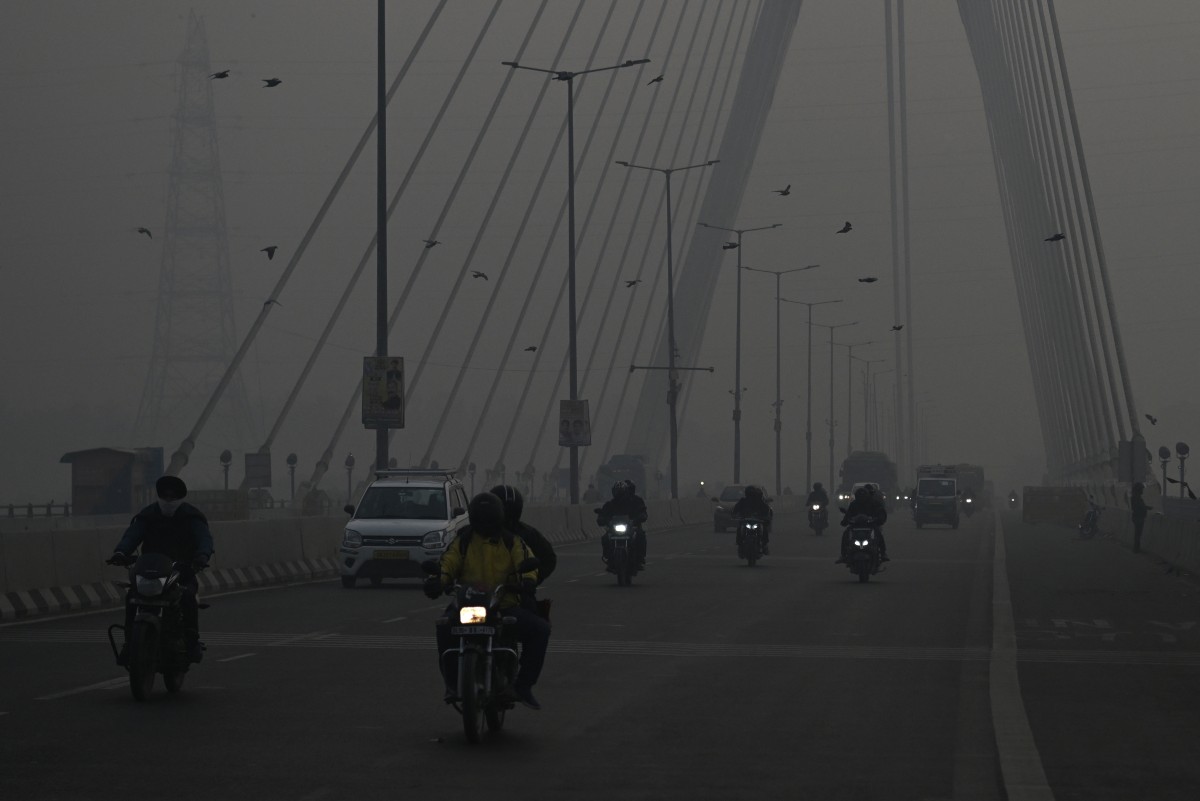
Commuters make their way through the Signature Bridge over the Yamuna River on a smoggy winter morning in New Delhi. Source: AFP
Saïd Business School
The weather in New Delhi, India, can be unpredictable. Heavy rainfall is often sudden, followed by intense heat. Bad air quality and other types of pollution are rife.
Witnessing these issues firsthand inspired Aniba Khan, a 12th grader at Ryan International School, to find solutions to combat climate change and make a difference. That’s when she and her friends came across the Oxford Saïd-Burjeel Holdings Climate Change Challenge, a global competition held by Saïd Business School and Burjeel Holdings.
“It felt like the ideal platform to share our ideas and contribute to global efforts to address this pressing issue,” says Khan. “Working on this project has profoundly changed my perspective on the role of school students in tackling environmental issues. It made me realise that we don’t have to wait until we’re older to make a difference; students can contribute significantly to creating a positive impact on the environment.”
Even though the challenge was virtual, Khan had the opportunity to work with great minds worldwide, cultivating essential skills such as teamwork, leadership, and effective communication. Her team, Aquifer Guardians, worked to create fresh solutions to climate challenges while learning about their far-reaching effects.
Now, she feels prepared to lead sustainability initiatives and projects in the future through her field of study – commerce.
“I gained a deeper understanding of the climate crisis, its far-reaching effects along with the alternative solutions we can adopt,” she says. “The experience reinforced the importance of taking collective action and using our voices to drive meaningful change.”








